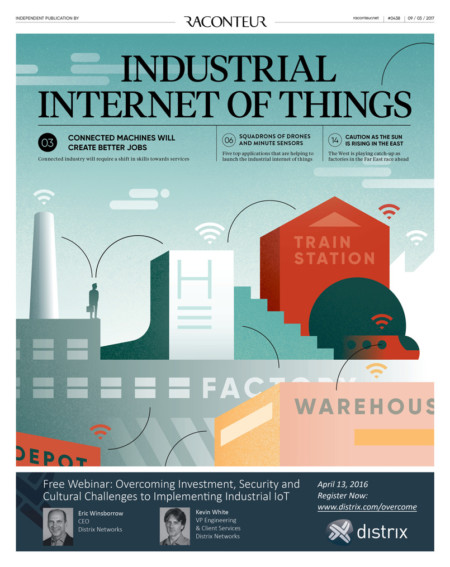drug development
See the following -
A Primer on the Open Source Movement from a Health Care Perspective
 Open source, in myriad forms, has emerged as a significant development model that drives both innovation and technological dispersion. Ignore it at your peril, as did the major computer companies destroyed or totally remade by Linux and free software, or encyclopedia publishers by Wikipedia, or journalists and marketers by social media. The term "open source" was associated first with free software, but it goes far beyond software now. People around the world use open hardware, demand open government, share open data, and--yes--pursue open health. The field of health, in particular, will be transformed by open source principles in software, in research, in consultations and telemedicine, and in the various forms of data sharing all these processes call for.
Open source, in myriad forms, has emerged as a significant development model that drives both innovation and technological dispersion. Ignore it at your peril, as did the major computer companies destroyed or totally remade by Linux and free software, or encyclopedia publishers by Wikipedia, or journalists and marketers by social media. The term "open source" was associated first with free software, but it goes far beyond software now. People around the world use open hardware, demand open government, share open data, and--yes--pursue open health. The field of health, in particular, will be transformed by open source principles in software, in research, in consultations and telemedicine, and in the various forms of data sharing all these processes call for.
- Login to post comments
ABLE, DUKE And OSHL Conduct Workshop On Meeting The Challenges Of Developing New Anticancer Therapies
Strategic planning, clinical trial initiatives, translational research, and regulatory elements of the drug development process were discussed
- Login to post comments
Big Pharma Opens New Chapter On Big Data Collaboration
In the course of one short week, no less than 3 different models have emerged for sharing big data in the pharmaceutical industry. The highest profile of these ‒ called Project Data Sphere (PDS here) ‒ was announced earlier today with the official opening of an online resource to share clinical trial data for use in cancer research.
- Login to post comments
Connected Tech Is Just the Thing for the NHS
 Healthcare systems all over the world are struggling with two fundamental concerns – how to afford the rising cost of delivering care and how to integrate ever-changing new technologies? These twin challenges are intrinsically connected, for emerging technologies offer the promise of making care more affordable as well as more effective. The rewards for successful implementation will be significant, for patients as well as for those responsible for the sustainability of healthcare systems. In healthcare, the internet of things (IoT) is changing the way we think about looking after people. At the heart of this technological revolution is a focus on connectivity. Drug discovery and greater understanding of disease are critical.
Healthcare systems all over the world are struggling with two fundamental concerns – how to afford the rising cost of delivering care and how to integrate ever-changing new technologies? These twin challenges are intrinsically connected, for emerging technologies offer the promise of making care more affordable as well as more effective. The rewards for successful implementation will be significant, for patients as well as for those responsible for the sustainability of healthcare systems. In healthcare, the internet of things (IoT) is changing the way we think about looking after people. At the heart of this technological revolution is a focus on connectivity. Drug discovery and greater understanding of disease are critical.
- Login to post comments
Digitaliza TXT Selected as a Finalist for the 2015 Bio-IT World Award for Its Adoption of Electronic Data Capture ClinCapture
Nominated by Clinovo, Digitaliza TXT, the leading technology provider for CROs in Latin America has been selected as one of the finalists for the 2015 Bio-IT Best Practices Award. Digitaliza TXT was nominated for its submission, sharing a real-life case study on transitioning from paper based studies to EDC system ClinCapture, to better support its local and global clients in the clinical trial industry. The Best Practices Awards highlight outstanding examples of how technology innovations and strategic initiatives can be powerful forces for change in the life sciences, from basic biomedical research to drug development and beyond. More than 75 projects have been recognized since 2003.
- Login to post comments
FDA Clears IND For First Clinical Trial Protocol Developed Using Crowdsourcing
Transparency Life Sciences, LLC (TLS), the world's first drug development company based on open innovation, today announced that its Investigational New Drug Application (IND) to assess lisinopril as an adjunctive therapy for multiple sclerosis (MS) has been cleared by the US Food and Drug Administration (FDA). Read More »
- Login to post comments
Five Ways Consortia Can Catalyse Open Science
“I am going to my grave with my disk drive in my cold dead hands.” So a senior scientist told a junior researcher, who related the tale at a 2013 US National Science Foundation (NSF) workshop on the reuse of physical samples in the geosciences. Sharing — of data sets, metadata, models, software and other resources — promises to speed discoveries, improve reproducibility and expand economic development. But it requires people to change. Overcoming personal reluctance is doubly difficult because many aspects of the scientific enterprise undermine sharing. Right now, most departments, funders and journals presume that data are proprietary from collection to publication..
- Login to post comments
Getting To The Right Relationship Between Doctors And Drug Companies
The pharmaceutical industry is held in remarkably low esteem right now. It's seen as a bunch of nefarious pushers who pay off vulnerable doctors to prescribe their latest expensive, mediocre product. Physicians who work with pharma companies are considered especially suspect, routinely described as "cozy," "in bed with industry," and "on the take." Read More »
- Login to post comments
Largest Cancer Gene Database Made Public
National Cancer Institute scientists have released the largest-ever database of cancer-related genetic variations, providing researchers the most comprehensive way so far to figure out how to target treatments for the disease. Read More »
- Login to post comments
Mainstreaming ME Research: The 8th Invest In ME International ME Conference, 2013
Mark Berry reports from London on the 8th Invest in ME International ME Conference. Read More »
- Login to post comments
Major Patent Pool Opens Up Research On Neglected Disease
Research on drug development for neglected tropical diseases (NTDs), tuberculosis and malaria will receive a boost from a major initiative launched by the World Intellectual Property Organization (WIPO) last week (26 October). Read More »
- Login to post comments
Open Source Paradigm Could Swipe Biz From CROs: Beroe
However “open source” drug discovery – by which a contractor buys a compound with little data, shares that data with a sponsor and then provides development services for a fee – could be a way to plug the gaps, Pakaravoor told us.
- Login to post comments
Open Source University Collaboration Platform Set to Spark Breakthroughs in Human, Animal Health
 Human and animal health research is receiving a shot of adrenaline thanks to a collaboration with Kansas State University's Olathe and Manhattan campuses and the University of Missouri-Kansas City. The project — 1Data — is designed to accelerate breakthroughs in human and animal health by establishing a new standard for analyzing cross-species health information...
Human and animal health research is receiving a shot of adrenaline thanks to a collaboration with Kansas State University's Olathe and Manhattan campuses and the University of Missouri-Kansas City. The project — 1Data — is designed to accelerate breakthroughs in human and animal health by establishing a new standard for analyzing cross-species health information...
- Login to post comments
Re-thinking Clinical Trials For The World Of Crowdsourcing
Disruption isn’t a word normally associated with clinical drug development, but nevertheless it is coming. [...] There are signals that drug development is starting to catch up with the general trend toward open collaboration and innovation. This trend is enabling tremendous advances in other industries, so why not ours? Read More »
- Login to post comments
Researcher with Stage 4 Cancer Launches Site to Help Others Navigate Clinical Trials
Among patients with colon cancer, researcher Tom Marsilje has made a name for himself by helping others learn about new clinical trials. He has scoured the database ClinicalTrials.gov, circulated a weekly spreadsheet, and served as a clearinghouse for patients desperate for a chance to beat back their disease. But, for Marsilje, it has been a labor-intensive process, and it has been hard to escape a troubling reality...
- Login to post comments